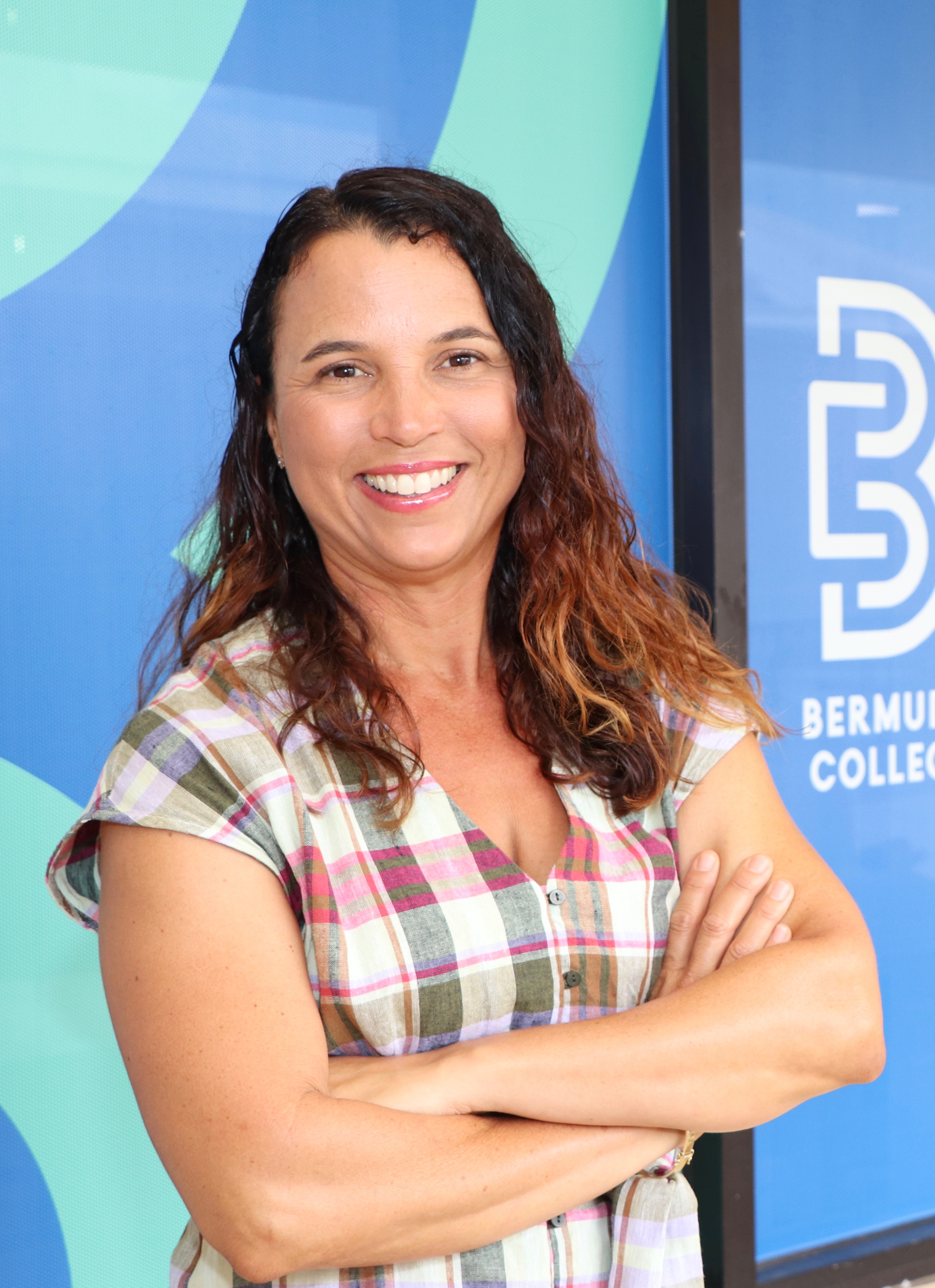Academic Advising
One Step Closer to Success
- ✔ An expert to help you navigate your academic journey and support you.
- ✔ An information resource to help you connect with the right people and services on campus.
Benefits of connecting with your advisor:
- ✔ To register for classes
- ✔ To help you build your class schedule that works best for you
- ✔ To keep you on track to graduate on time
- ✔ To advise you about degree options and career pathways
- ✔ To ease first-time students into college and campus life
View the Advising Handbook to learn more about the vision, mission, and goals of advisors on campus.
Meet the Advising Staff
Primary Role Advisors

Takia Bean
Science Faculty Tutor
Phone: 236-9000 ext:4204
Email: This email address is being protected from spambots. You need JavaScript enabled to view it.
Book an appointment with me through Calendly.

Janea Mallory
Counsellor
Phone: 236-9000 ext:4063
Email: This email address is being protected from spambots. You need JavaScript enabled to view it.
Book an appointment with me through Calendly.

Rhema Webb-Hollis
Academic Advisor
Phone: 236-9000 ext:4209
Email: This email address is being protected from spambots. You need JavaScript enabled to view it.
Book an appointment with me through Microsoft Bookings.

Division of Arts & Science
The Arts and Sciences (A&S) Division envisions a learning environment which nourishes concepts and attitudes that enable students to respond creatively, intelligently, and compassionately to change and diversity within our community and the world.

Division of Business, Hospitality and Technical Education
The Division of Business and Hospitality Management focuses its scholarly efforts and learning and teaching activities on the academic disciplines of accounting and finance, hotel and tourism management, management and marketing.

Division of Nursing and Allied Health
The Division of Nursing & Health Sciences at Bermuda College is committed to providing high-quality, evidence-based, health professional training programs to meet the evolving needs of the local healthcare community.
Student Learning Outcomes
As a result of Academic Advising students will:
- Demonstrate personal responsibility by accessing and utilizing college technology resources for managing BC email, Moodle, BC App, enrolling in courses, submitting course evaluations, and locating course grades.
- Demonstrate personal responsibility by identifying and utilizing college resources including library services, CCC, CLAS, advising, and financial aid.
- Improve collegiate survival skills through a mandatory seminar outlining the advisor and advisee partnership.
- Demonstrate familiarity with course listings and academic catalogue highlighting sessional dates.
- Demonstrate foundational models of communication by creating schedules, and revising a semester course calendar that reflects the programme summary sheet and identifies due dates and schedules study time.
- Assume responsibility for meeting academic program requirements.
- Choose their pathway by gaining information regarding their education, career, financial, and personal intentions.
- Create and follow a succession plan, as needed, for early utilization of learning resources to support degree completion.
- Develop and maintain a semester-by-semester pathway plan which specifies courses that will lead to credentials and meet career, transfer, and financial goals.
- Engage in co-curricular opportunities related to chosen pathway, work shadow, and internship.
- Develop habits of mind to successfully navigate the world beyond BC.
Organization of advising at Bermuda college
Types of Advisors
There will be three kinds of advisors: Primary Role Advisors, Faculty Advisors, and Faculty Advising Mentors. Primary role advisors will have advising as a major part of their workload. There will be one primary role advisor for each of the following areas:
- Arts and Science
- Business, Hospitality & Technical Education
- Dual enrolment/ College Promise
- Pre-nursing
- Neurodiversity/exceptionalities
Note: Faculty will advise the small number of students majoring in Nursing and Allied Health.
The case/workload of the Primary Role Advisor
Contingent upon the size of the student population, the primary role advisor will have a higher caseload than a faculty advisory therefore reducing the number of advisees assigned to faculty advisors. A primary role advisor may also have other duties such as tutoring and or teaching as an adjunct instructor, so that advising might be 50-100% of their workload.
Contractual Obligation
Both the faculty advisor, and advising mentor are advisors consistent with (Article #47.7) in the Collective Bargaining Agreement (CBA). The options of serving as a faculty advisor or an advising mentor provide an element of choice while ensuring that all faculty are involved with student advising at some level.
Faculty advisors will be programme-oriented in accordance with their subject of expertise and be assigned a caseload of advisees. Advising mentors will provide informational workshops which will either be mandatory for all students or attended by students as assigned by their advisors.
Assignment to an advisor
Students will initially be assigned to primary role or faculty advisor but not to an advising mentor.
individual Mentoring
An advisor may assign selected students to meet with a mentor to support them in their particular field of study or career interests. Not all students will need an individual mentor. Where it does happen, mentoring of students may occur individually or in group settings.
Comparability of Duties
While a faculty advisor may be assigned up to 10 students (approx.), the mentor will be expected to hold workshops 2-3 times per semester and provide information to advisors as needed. Workshops will require preparation and execution that may be considered comparable to the caseload of the faculty advisor.
Assignments across divisions
The assignment would start with primary role advisors and then the remainder would be assigned to faculty advisors. However, due to the large numbers of students in particular subjects in Arts and Science, the primary role advisor may have to share advising in some areas- e.g. science.
The assignment of faculty
Faculty will be assigned to their advising role by the Division Head. With this new approach, faculty will be required to complete the advising course and there will be professional development for faculty mentors. At this point, faculty have generally have been invited to participate as faculty advisors
The timing of advising
Advising will occur at least two times per semester- within 3 weeks of the beginning of the semester and in time for pre-registration. Advisors may hold additional sessions with students as needed. Students in some categories- e.g. students on probation might require more sessions to meet their needs.
The advising format
The format of advising may be person or virtual and include phone calls, WhatsApp, email and other media. The length of a session may vary depending on the students’ needs and range from a 10-minute check-in to a 30– 60-minute session. In special instances, such as onboarding new students, more than an hour may be required. Students will be assigned to one advisor for their entire BC journey. However, they will have the option to change advisors if necessary.
Advising during the summer
During the summer or when an advisory is not available, students may be assisted by any primary role advisor. However, as soon as possible in August, new students will meet with their designated advisor. Summer advisement events to accommodate new registrants may also be scheduled.
To accommodate the need for advisors during the summer, it may be necessary to revise summer vacation for the primary role advisors so that there is always at least one advisor available during the summer months (particularly mid-July-August).
Roles and responsibilities
Advisors
Academic advisors are knowledgeable about institutional programmes, policies and procedures and remain current in this knowledge. They are committed to developing relationships with students that will promote student success while fostering their independence and autonomy. They collaborate and partner with students on chartering the educational and career pathways. Advisors are expected to:
- Be proficient in use of Anthology
- Maintain meeting notes in Anthology
- Initiate introductory meetings with advisees
- Provide a rationale and/or explain institutional policies, procedures and requirements.
- Follow-up with special groups (e.g. Dual enrolment, College Promise, Probation).
- Promote the importance of advisement and its relevance to student success.
- Provide structure to the advising process.
- Promote information about other campus resources, e.g. financial aid.
- Clarify misconceptions about programmes and career paths.
- Keep students informed of any relevant changes in curriculum or requirements.
- Encourage discussion and exploration regarding possible changes and adjustments.
- Use the advisory as a teachable moment to assist advisees to become independent and responsible for their academic journey.
- Provide guidance for the following information:
- How to understand individual programme
- To know how many credits are needed
- To discuss the importance of grades, GPA and calculations
- Enable students to register themselves with an opportunity for advisor to sign off on registration.
- Facilitate student’s problem solving and decision-making.
- Clarify education and career goals.
- Evaluate and monitor student progress and achievement.
- Advise on course selection and other educational issues.
- Develop an approach to advising the student based on the individual’s needs.
- Build a relationship with students via consistent communication and accessibility.
- Refer students to external services as needed. e.g. Bermuda Scholarship Board
- Engage in proactive advising strategies starting in the admissions period.
- Consult with faculty as needed. e.g. CIS
- Provide guidance and direction to resources regarding career interests and options.
- Assist student with maintaining a portfolio, with reference letters and other materials. to be maintained by the student with a copy to the advisor to monitor progress.
Advisees
Advisees are equal partners with their advisors as they develop their educational pursuits, academic career pathways and academic planning and scheduling. The advisee assumes independence and takes responsibility for their learning and outcomes.
Advisees:
- Prepare for advising sessions by bringing updated programme summary sheet.
- Prepare a tentative class selection for the upcoming semester and bring to the meeting.
- Request a new academic advisor when applicable.
- Must be aware of the sessional dates.
- Familiarize themselves with programme requirements.
- Clarify abilities, interests, and goals for education and career path.
- Contact and schedule regular appointments with their advisor each semester as required or when in need of assistance.
- Ensure the College has updated contact information as needed.
- Maintain their Advising Portfolio including educational plan and other details.
- Be aware of and adhere to institutional policies, procedures, and requirements.
- Regularly check BC email account, the BC App, and other college platforms to communicate with advisor.
- Build a relationship with advisor and maintain consistent communication.
- Be accountable for decisions made and graduation requirements.


























